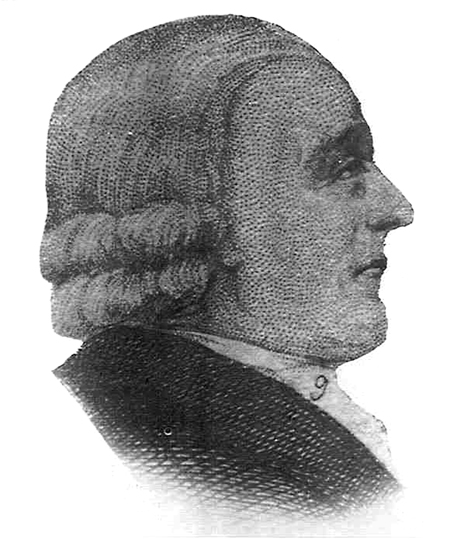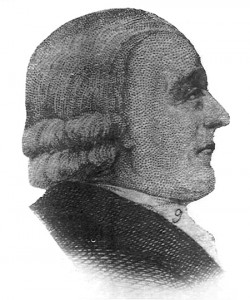 How does renewal or revival come to a Christian community or congregation? A variety of answers can be given to this important question, but, from the vantage-point of church history, prayer will lead the list.
How does renewal or revival come to a Christian community or congregation? A variety of answers can be given to this important question, but, from the vantage-point of church history, prayer will lead the list.
When God’s people are driven to realize their desperate need for spiritual advance and revival, they also realize they must pray for this to happen. For only God can do the work of God, and true revival is His work. As such, they cry out to God, both corporately and singly, for God to stretch forth His arm and revive His people. A great example of this important truth can be found in the English Baptist community of the 18th century that we began to look at in the last issue.
Jonathan Edwards’ Humble Attempt
This community was in serious decline. But in the spring of 1784 an English Baptist pastor, John Sutcliff (1752–1814) of Olney, read a small book by the American theologian Jonathan Edwards (1703–1758), titled An Humble Attempt to Promote Explicit Agreement and Visible Union of God’s People in Extraordinary Prayer, For the Revival of Religion and the Advancement of Christ’s Kingdom on Earth (often simply referred to as the Humble Attempt).
The treatise is well summed up by a sentence near the beginning of the work: “It is a very suitable thing, and well-pleasing to God, for many people, in different parts of the world, by express agreement, to come into a visible union in extraordinary, speedy, fervent, and constant prayer, for those great effusions of the Holy Spirit, which shall bring on that advancement of Christ’s church and kingdom, that God has so often promised shall be in the latter ages of the world.”
The Prayer Call of 1784
Reading Edwards’s Humble Attempt in the spring of 1784 had a profound impact on Sutcliff. That June, at the annual meeting of the Northamptonshire Baptist Association, he proposed that the churches of the association establish monthly prayer meetings for the outpouring of God’s Holy Spirit and the consequent revival of the Baptist churches of Great Britain. This proposal was adopted by the representatives of the 16 churches at the meeting, and on the last page of the circular letter sent out that year to the churches of the Association there was a call for them “to wrestle with God for the effusion of His Holy Spirit.”
After recommending that there be corporate prayer for one hour on the first Monday evening of the month, the call, most likely drawn up by Sutcliff, continued:
“The grand object in prayer is to be, that the Holy Spirit may be poured down on our ministers and churches, that sinners may be converted, the saints edified, the interest of religion revived, and the name of God glorified. At the same time remember, we trust you will not confine your requests to your own societies (i.e. churches) or to your own immediate connection (i.e. denomination); let the whole interest of Redeemer be affectionately remembered, and the spread of the gospel to the most distant parts of the habitable globe be the object of your most fervent requests. We shall rejoice if any other Christian societies of our own or other denomination will unite with us, and do now invite them most cordially to join heart and hand in the attempt.
“Who can tell what the consequences of such an united effort in prayer may be! Let us plead with God the many gracious promises of His word, which relate to the future success of His gospel. He has said, ‘I will yet for this be inquired of by the house of Israel, to do it for them, I will increase them with men like a flock’ (Ezek. 36:37). Surely we have love enough for Zion to set apart one hour at a time, twelve times in a year, to seek her welfare.”
Four noteworthy points
There are at least four points about this Prayer Call that need noting. First, very much in evidence in this statement is the conviction that any reversal of the decline of the English Baptists could not be accomplished by mere human zeal, but must be effected by the Spirit of God.
Then there is the unity that is recommended with regard to the subjects of prayer. As the Baptists of the Northamptonshire Association gathered together to pray, they were encouraged not to think simply of their own churches and their own denomination, but they were to embrace in prayer believers of other denominational bodies. The kingdom of God consists of more than Baptists! In fact, churches of other associations were encouraged to join with them in praying for revival.
Third, there is the distinct missionary emphasis of the Prayer Call. The members of the Association churches were urged to pray that the Gospel be spread “to the most distant parts of the habitable globe.” Little did these Baptists realize how God would begin to fulfill these very prayers within the space of less than a decade.
Finally, the sole foundation for praying for revival is located in the Scriptures. Only one text, Ezekiel 36:37, is actually cited, but those issuing this call to prayer are aware of “many gracious promises” in God’s Word which speak of the successful advance of His kingdom.
So the churches of this Association began to pray, and God heard their prayers. But it was not all at once, as we shall see.
Michael A.G. Haykin serves as Professor of Church History and Biblical Spirituality at The Southern Baptist Theological Seminary in Louisville, KY.




